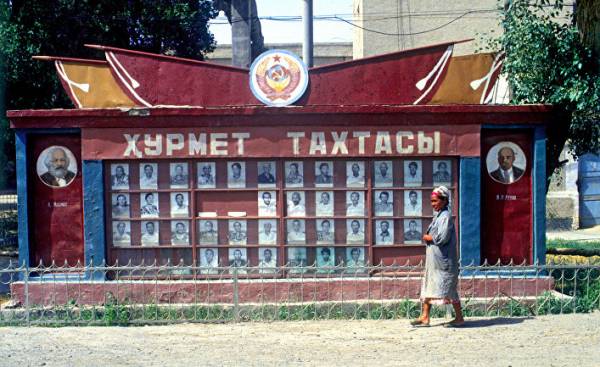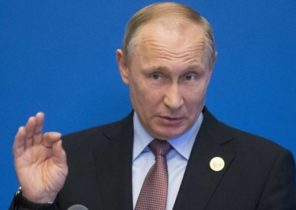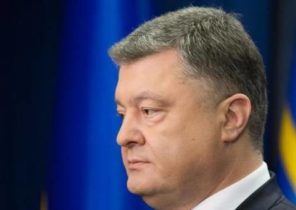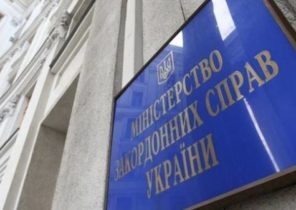
When last year Atamuradov Sarwar announced his candidacy for the post of the President of Uzbekistan, one of the pillars of his campaign platform was to ensure a complete transition to the Latin alphabet.The tone of the platform was displayed in the very name of his party “Milly Tiklanish” (National revival). As often stated by the supporters of the introduction of the Latin alphabet in Uzbek language, rejection imposed in Soviet times the Cyrillic alphabet will allow the state to consolidate its national identity.
Meanwhile, critics point to the fact that a complete transition to the Latin alphabet will require huge costs and will create problems for those whom the knowledge of the Cyrillic alphabet helps make the bread.
This question has been discussed for a quarter century.
In the spring of 1993 in Uzbekistan was established the governmental Commission, which was tasked to study the possibility of rejection of the Cyrillic alphabet. Apparently, this initiative was the result of a meeting held in March of that year in Ankara discussions between official representatives formed after the collapse of the Soviet Union Turkic States. But the discussion about it by the time burning is not the first year. Some even called for a return to the Arabic alphabet. But in the end it prevailed to those who, in particular, said that knowledge of Latin will facilitate the introduction of new technologies, such as computers.
In September of the same year the Parliament adopted the law “On introduction of the Uzbek alphabet based on Latin script”, which prescribes and schedule of reform implementation. The law provided for the adoption of measures to educate the population of the Latin alphabet and complete transition to the Latin alphabet by the year 2000.
Russian media reaction was predictably negative. In October 1993, the Kremlin-funded the publication of “Russian newspaper” published an article entitled “good-bye, the alphabet” in which the adoption of the law on transition to the Latin alphabet was named not only as a betrayal.
“It is curious that in the years of perestroika the local intelligentsia condemned the Communist government for the violence against the Uzbek language, which led to separation from the spiritual roots of the written monuments of antiquity. It was said that people twice because of the change of alphabets immersed in ignorance. Now it does not remember”, — noted in the material of the Tashkent newspaper journalist Vladimir Berezovsky.
Not paying attention to such attacks, the Uzbek authorities began to publish new textbooks, and for adults to organize intensive courses on the study of Latin. But the introduction in 1995 of amendments to the Uzbek Latin alphabet has slowed the process. Lack of resources and inconsistent application of the rules has further slowed the reform, raising questions from leading scientific figures, including scholar and historian Artem Komarkova, about confusion, and confusion with the implementation of the above law.
“I especially was curious of the words having Latin characters, but whose linguistic identity is in doubt: just “something Western” — most often in the names of companies: “cafe Millenium”, “kafe Fant”, “Style salon” (beauty salon), or in the designation of types of institutions “internet club”, “billiard club”, “supermarket” is already English or Uzbek?” — wrote Kosmarsky in 2005.
Sometimes the transliteration of Russian words from Cyrillic to the Latin alphabet leads to funny things. An example is the word “shop”, which in Uzbek Latin is written as “sex”. As a result, in Uzbekistan you can see signs like “Kolbasa Sexi”, which is very amusing local schoolchildren.
Due to delays the deadline for transition to the Latin alphabet first moved to 2005 and then 2010. Perhaps realizing that all the timing out, and things are there, and Uzbek officials recently try not to touch this topic publicly.
The model for the post-Soviet Turkic States in this regard is, unsurprisingly, Turkey where a modified Latin alphabet was introduced in 1920-ies, during the period of rapid Westernization. Ankara openly used his status, hoping to replace Russia in this region as a “big brother”.
From the post-Soviet Turkic republics was the first to launch the reform of Azerbaijan. Already to the first anniversary of the independence of the first-graders were given books published in Latin. Now the inscription in Latin in the country can be seen everywhere, and Cyrillic has almost disappeared from view.
In Turkmenistan, the Parliament adopted the decision to embark on this path in April 1993. The first book published on a new, very modified to the needs of the Turkmen language in the Latin script, was introduced in 1995, the biography of President Saparmurat Niyazov.
Problems with the implementation of reforms in Uzbekistan, it seems, has lost a degree of debate about Latin in neighbouring Kazakhstan, where President Nursultan Nazarbayev from time to time reminds people about the desire in the end to replace the Cyrillic alphabet with the Latin alphabet.
In the history of modern Uzbekistan, the reform of writing the third. In 1929 the Arabic alphabet, which was used by the educated members of the elite, replaced adapted to the needs of the Uzbek language in the Latin alphabet. Moscow has Arabic script was associated with Islam and, as a result, the Kremlin leadership considered the adoption of the new charts as the fastest way to get rid of what it considered bigotry and prejudice. Immediately impose on the transition to the Cyrillic alphabet decided not to partly because of fears that it might cause a nationalist, anti-Russian reaction in the region where such sentiments were very strong against the background of decades of resistance by the local rebels first tsarist and then Bolshevik authorities.
But Latin did not have time to settle down, and then to distancing Central Asia from westernaires Turkey, where Latin became the main alphabet, Uzbek writing in 1940, was transferred to the Cyrillic alphabet.
Now views on how Uzbekistan to move on, differ.
Analyst Anvar Nazirov said in an interview with EurasiaNet.org that the policy of switching to Latin alphabet in Uzbekistan was correct, but the transition itself was uncontrollable, and the opinion of professionals was ignored.
“In those 23 years there were no attempts to adapt the Latin alphabet for the Uzbek language, was not the competent organization of the implementation of the new alphabet in the paperwork”, he said.
The main argument against the full transition to the Latin alphabet are associated with such reform costs.
“This shift has complicated the lives of young people, especially those who left to work in Russia or Kazakhstan, because it hinders their communication with the local population, interferes with the work,” said EurasiaNet.org the veteran journalist Alpari Khodzhaev.
The Latin alphabet has managed to fully implement the curriculum. Also it is on par with the Cyrillic alphabet is used when writing names of streets and transport routes. Attempts of national Newspapers and magazines to learn Latin convinced the editors that it is fraught with loss of readers and therefore profits. Therefore, they do not hurry to transfer to the Latin alphabet.
The Internet in Uzbek Cyrillic and Latin coexist side by side. The websites of state agencies overlap with published information not only in Russian and English, but also in the Uzbek versions of the Cyrillic and Latin alphabets.
Meanwhile, the paperwork is almost completely remained in the Cyrillic alphabet, which is used in government and legal documents, as well as in business correspondence.
Against this background, politicians trying to promote their nationalist agenda, including the full introduction of the Latin alphabet, of bestowal, it seems, will have to wait quite a long time. Of course, no one was likely to beat the President of Uzbekistan Mirziyoyev at the last election in December, but perhaps notable is the fact that a supporter of the transition to the Latin alphabet of Atamuradov finished the last of the four of the candidates with 2.4% of the vote.
“The introduction of the Latin alphabet divided the society into two camps: supporters and opponents of the new alphabet, — said the teacher of one of universities in Tashkent Fahriddin gurbazar. — I would not vote for Atamuradova and, I think, who grew up in Cyrillic generation adheres to the same position.”







